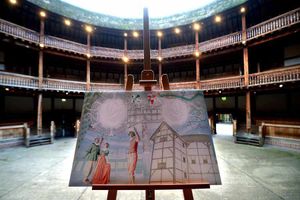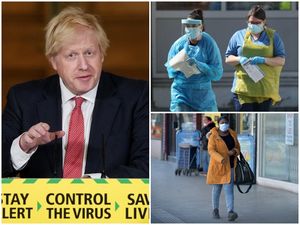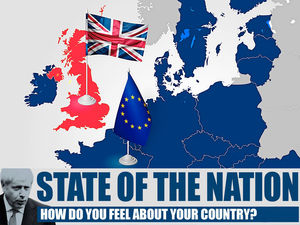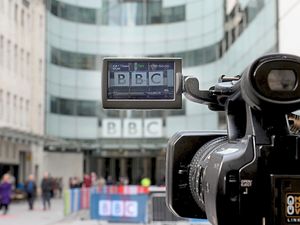Poll: Should more women be celebrated on the new UK passport?
Only two women are celebrated on the design for the new UK passport, which claims to showcase the country's cultural and creative heritage. Should there be more?

Mathematician and writer Ada Lovelace and architect Elisabeth Scott are depicted in the latest version of the travel document unveiled today.
By contrast, seven men including William Shakespeare, artist John Constable and sculptor Anish Kapoor are represented either in portraits or through their achievements.
The new 34-page passport's theme is "Creative United Kingdom", which official literature said features "some of the best achievements of the last 500 years in Great Britain and Northern Ireland".
Mark Thomson, director general of the Passport Office, defended the design.
He said: "It wasn't something where we said let's set out to only have two women.
"In trying to celebrate the UK's creativity we tried to get a range of locations and things around the country to celebrate our triumphs over the years, so there we are."
Asked about the omission of female icons such as Jane Austen and the Bronte sisters, he said: "Whenever we do these things there is always someone who wants their favourite rock band or icon in the book.
"We've got 16 pages, a very finite space. We like to feel we've got a good representative view celebrating some real icons of the UK- Shakespeare, Constable and of course Elisabeth Scott herself."
Scott designed the Shakespeare Memorial Theatre, which opened in Stratford-upon-Avon in 1932.
The designs were said to have been developed by the Passport Office in consultation with designers and printers and authorised by ministers .
As well as Shakespeare, Constable and Kapoor, the new book features architect Sir Giles Gilbert Scott, artist Sir Antony Gormley, computer pioneer Charles Babbage and John Harrison, a clockmaker who invented the marine timekeeper.
Other pages are devoted to Stephenson's Rocket - the world's first modern steam locomotive, the London Underground, Shakespeare's Globe theatre and cultural festivals such as Caribbean carnivals and Chinese New Year.
A portrait of Shakespeare is used for the security watermark on each page.
The new design sparked allegations of sexism.
Labour MP Emily Thornberry tweeted: " Here we go again - new UK #passport has 7 men featured and just 2 women."
Presenting the new passport at Shakespeare's Globe in London today, Immigration Minister James Brokenshire said it will "showcase the great successes of UK culture".
Meanwhile, officials said the new passport was the most secure ever produced.
It includes a number of technology features have been introduced to limit the risk of tampering or forgery by fraudsters.
They include embedded security fibres which appear on every page and which, when exposed to UV light, fluoresce in a different light.
It also has a perforated version of the holder's passport number which causes the page to rip if tampered with, and enhanced holograms on the passport picture page.
One continuous sheet of paper has been used for the laminated personal details page so it is adjoined to the back cover, meaning any tampering would lead to irreparable damage that would be obvious to officials.
Security inks used to print the passport have also been upgraded. For example, a floral pattern is made in such a way that it will disappear when exposed to an infra-red light.
Other security features have been built in to the new passport but are kept secret.
Mr Thomson said: "This is the most secure passport we have ever produced. Try forging this - it's going to be very, very difficult indeed
"I think this is good enough to make someone just not bother. We think it's pretty damn good."
A new passport is launched in the UK every five years, with work on the new design starting more than two years ago.
It has been produced as part of a 10-year £400 million contract.
Applicants for a standard 32-page passport pay £32.50. Mr Thomson said: "There are no plans to change the price of a basic passport."
The new document will be phased in from December 2015.





